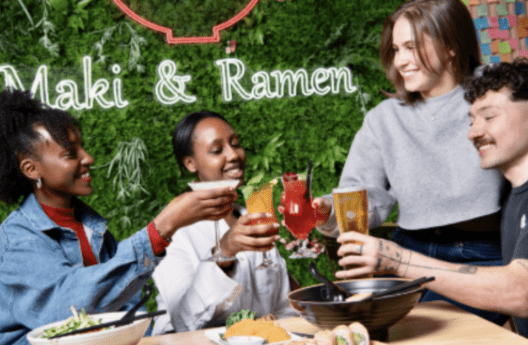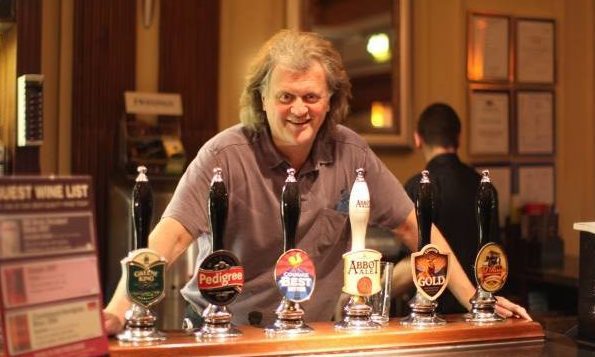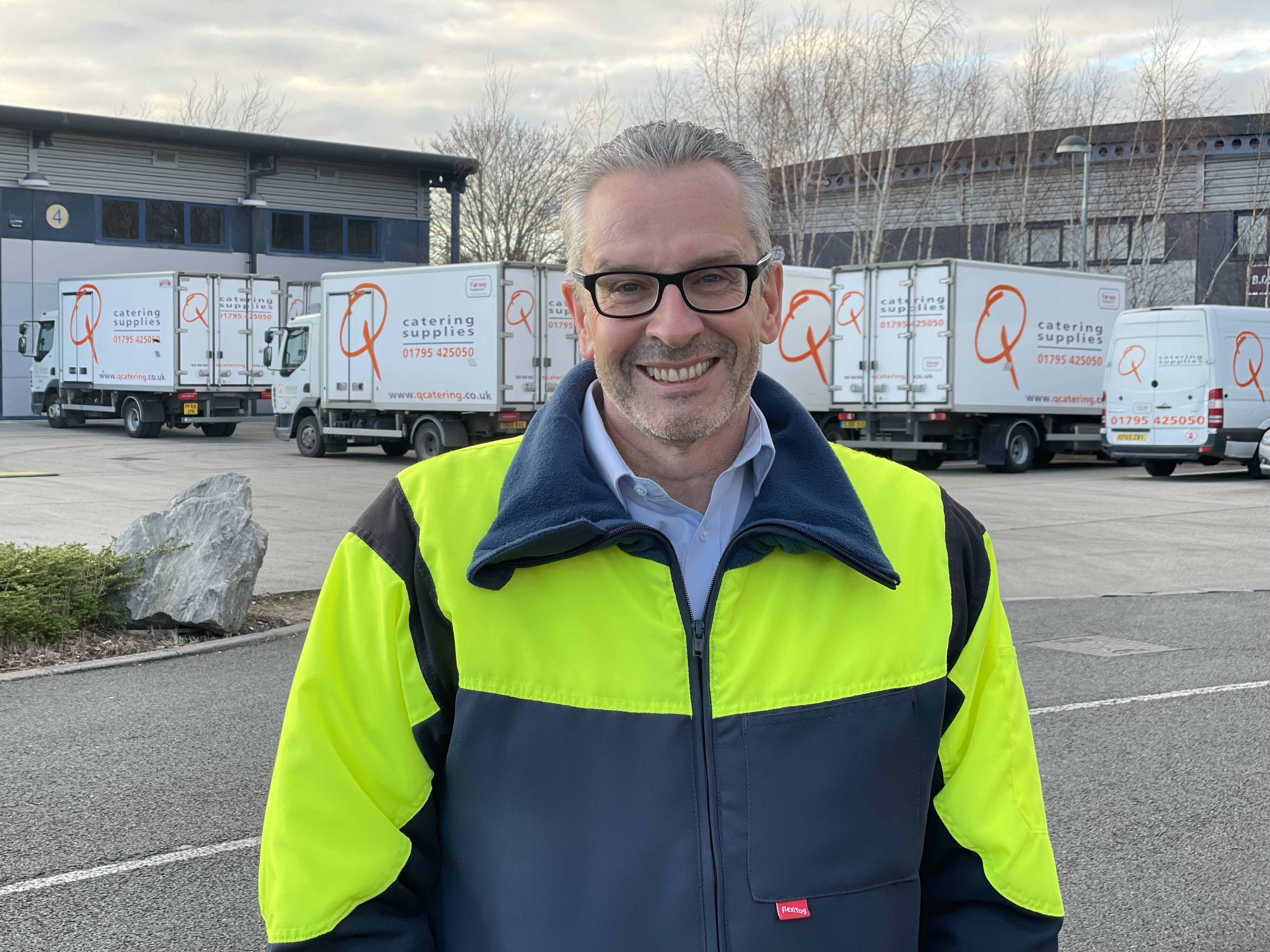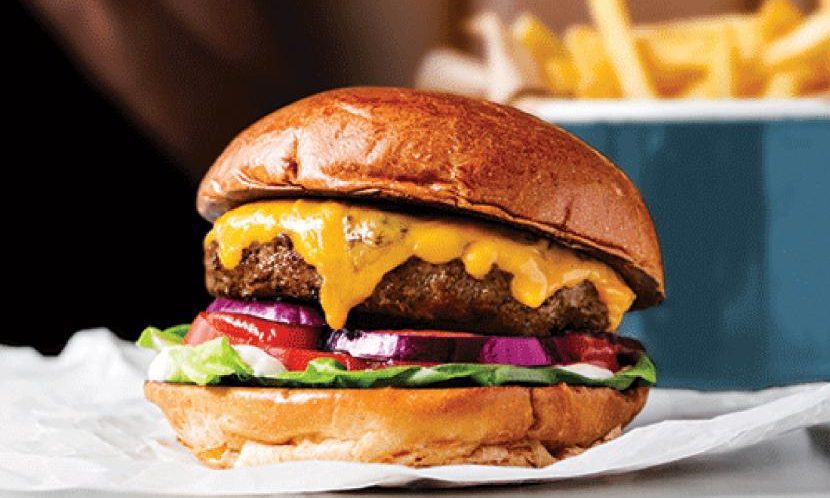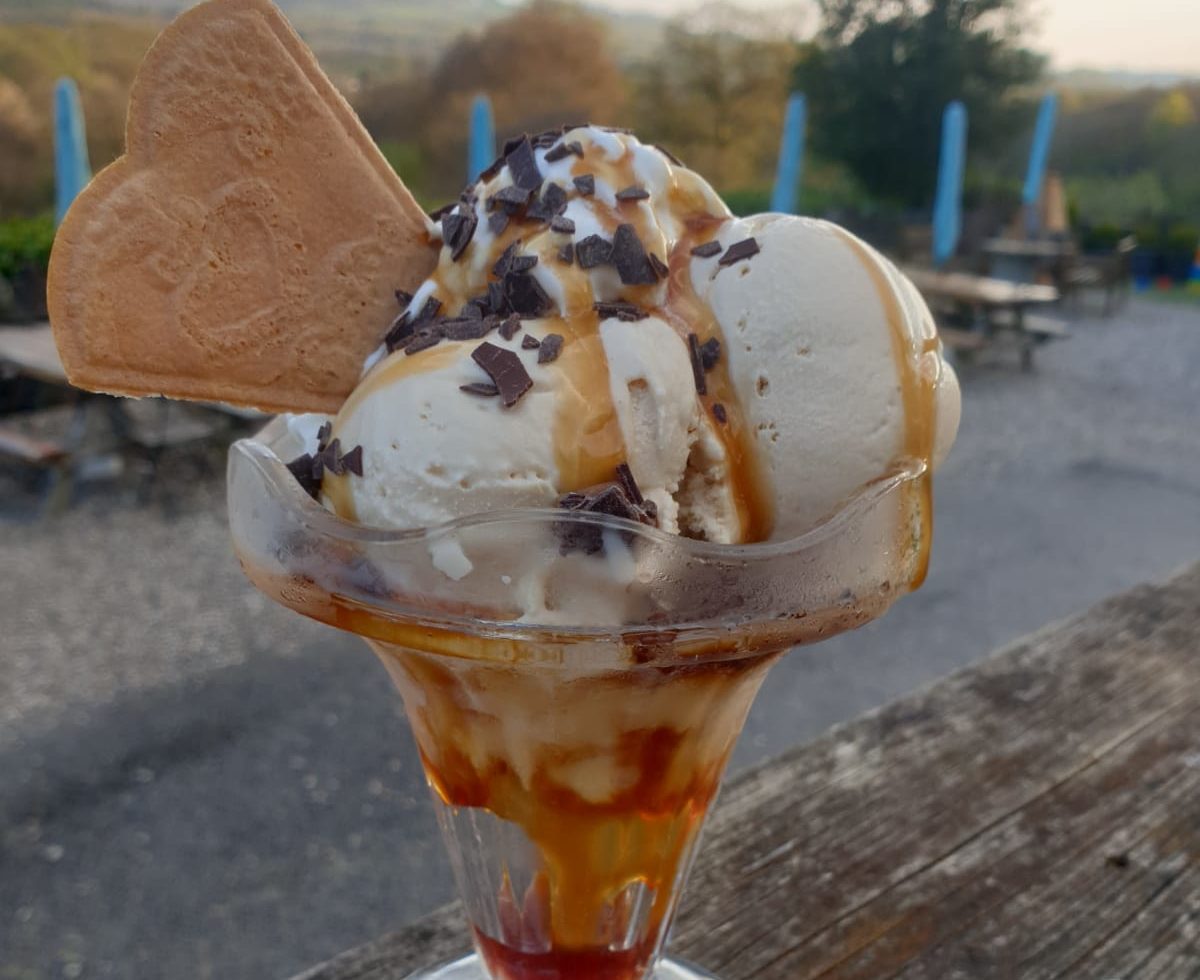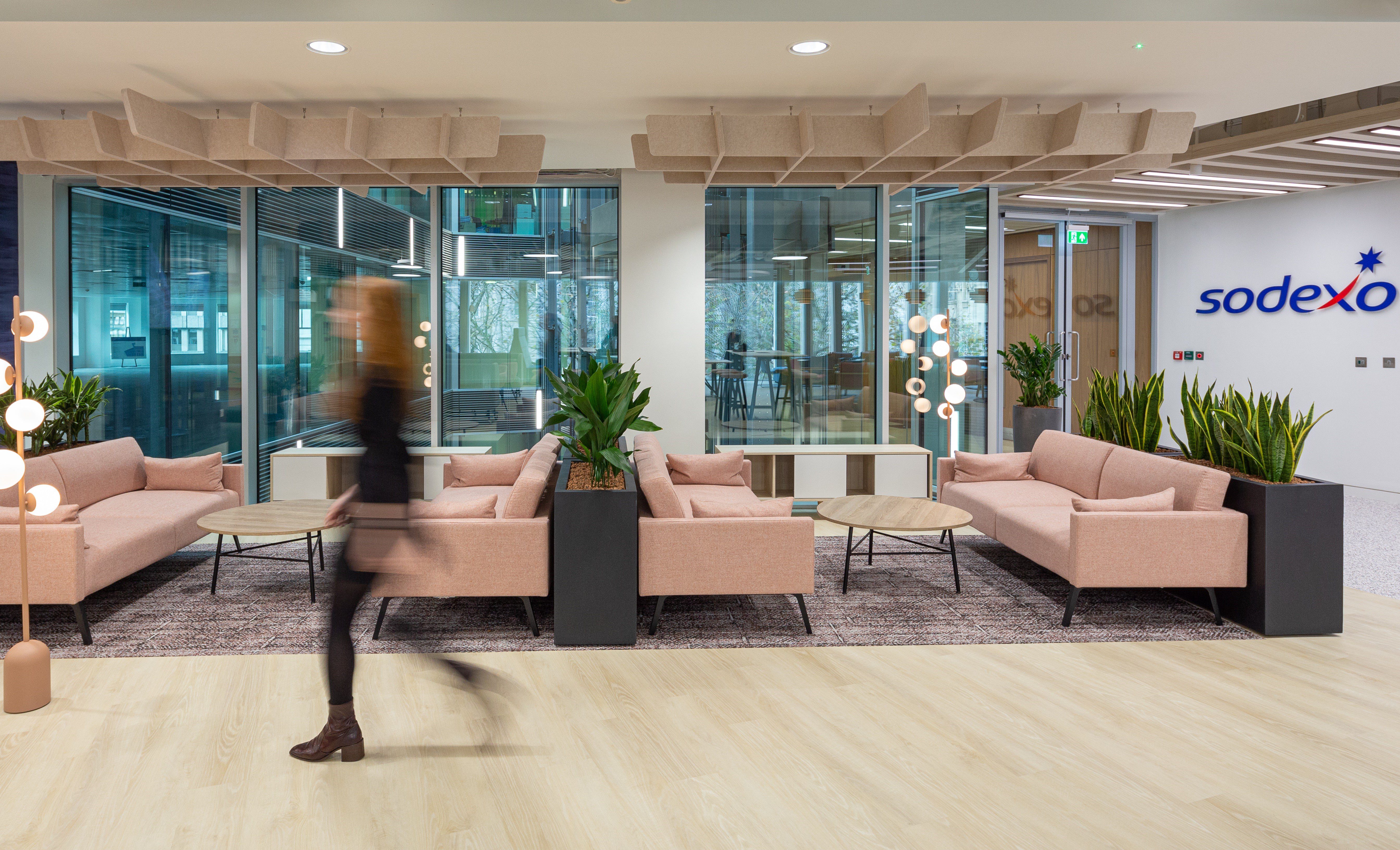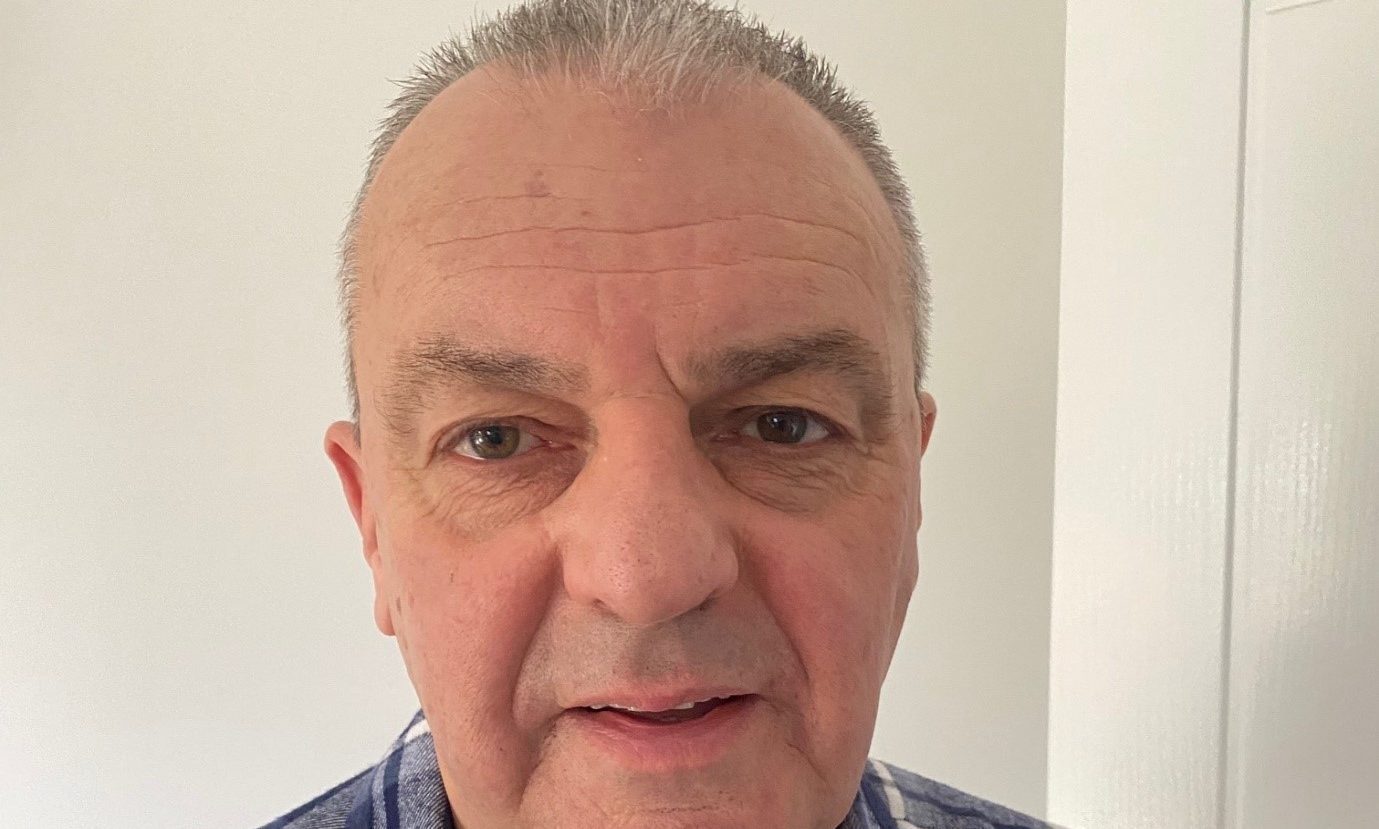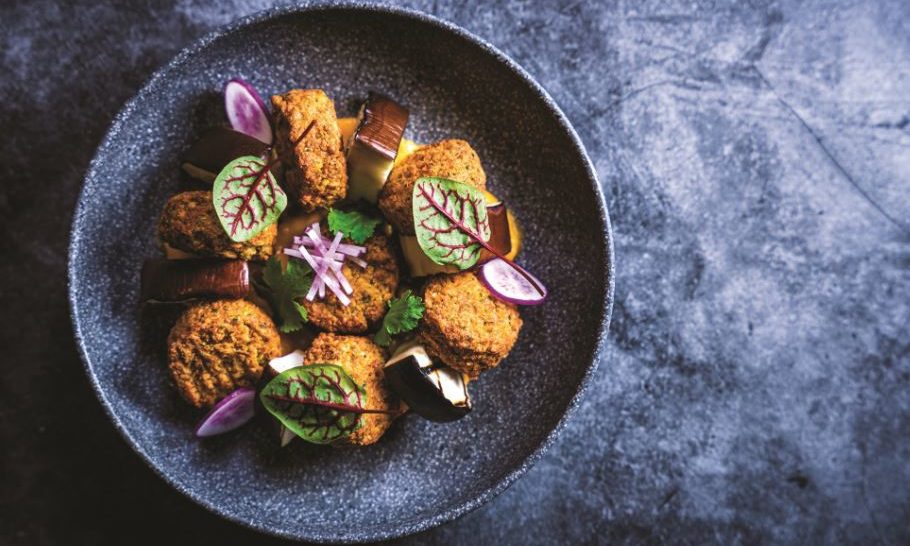Register to get 5 free articles
Reveal the article below by registering for our email newsletter.
Want unlimited access? View Plans
Already have an account? Sign in
Q catering appointed three new members of staff from Kent Frozen Foods towards the end of 2022; Tony Blake as commercial director, Caroline Martin as sales director and Nick Jennings as financial director.
How pleased are you with your recent appointments?
These were people that I worked with at KFF. I think we’ve got a combined number of years that we’ve worked together, something like just over 80 years that we’ve all worked and known how we work now. It was a [bit of] a shortcut because they understand what I want, we work together and have worked together successfully and it makes it a lot easier when you have a like minded understanding of what the future holds and what you want to get out of it. From that perspective I am very pleased, because it’s a big jump for someone when you’re in a large organisation that is reasonably safe to come to an organisation which is very much in its growth stage. They would be forgiven for saying no, I don’t need to take a risk but I’ve been lucky that all of them saw it as a great opportunity to do something big with Q.
Just how happy were you with your company’s performance over the last year?
If I’m looking at it in real terms, last year was about putting building blocks in place. When I joined the business, we were at a stage where there wasn’t a lot of growth within the facility that we had. That was something that I identified very early on. I said if we are going to push this business forward, we need to make a very early investment in infrastructure to be able to grow the business. We set ourselves a target of £20m [turnover] by 2030. So we made that investment last year. We’ve taken on another unit, I’ve built a new freezer here, which has doubled our capacity for frozen, and a chiller that tripled our capacity for chilled. We’ve set ourselves up nicely now for next year and hitting our target for 2030. I am satisfied with the growth that we’ve achieved. I think in real terms, if you take a rough and ready figure for sales, you’re looking at just short of 15% growth for last year. Admittedly, that’s coming out of a pandemic, but it’s still 15% growth on where we were. So I think I’m satisfied with that. That’s with the backdrop of food inflation, war in Ukraine, supply chain issues, staffing issues, driver issues, all of these things that will still give us a backdrop of challenging times for the next year or two.
How were you able to manage those challenges?
By trying to be proactive. We’ve tried to second guess what challenges lie ahead and tried to mitigate some of those challenges. Not all of them, because we’re all still suffering from food inflation, which we’re still experiencing into January and that’s now being driven by energy prices whereas before, it was a lot of ingredient based things like wheat. I think we’re still managing to be transparent with the customer, explaining to them why these prices are going up. Obviously, the media helps because they’re seeing it day to day not only on the news, but in their own shopping at home, they’re seeing prices go up. So it’s probably been easier to get those price increases through than it has historically.
What are your plans for 2023?
The investment that we put in place will allow us to have a programme of new product development. Tony, my commercial manager, was bought in with a remit to bring new products to the table. Now this isn’t weird and wonderful stuff. This is gap analysis, this is this is bringing on products that people want to buy, as well as trying to be a little bit more innovative with what we’re doing. Tony will be training our salespeople on the product so they will be able to be more consultative in the way that they’re selling products rather than just selling a product in a brochure or a product number. So we want to add value to what customers are wanting, and hopefully be more able to identify products which are suited to the particular customer categories.
What are the biggest challenges with that and how would you plan to overcome them?
Stock availability is still a challenge particularly keeping a lid on the pricing and having the products available to sell. That won’t go away so we have to be a little bit more proactive on that. I’m hoping that our investment in things like the new freezer will enable us to carry a little bit more stock. Obviously it all has to be done within the realms of overstock in and cash flow, etc, but we’re able to maybe mitigate some of those issues by carrying the stock on site. We have also invested in vehicles to take control of our own vehicles and make sure that we have the vehicles here to deliver to the customers.
Where do you see the company in five years?
It’s all about this eight year plan. Within five years, we would very much be in a position where we’d been needing to look at the next stage of evolution of the business. I would like to be in a position to invest in a purpose built depot. So we have to have one eye on the next phase but we also very much have to keep one eye on the challenging climate that we’re in. We don’t know the impact of the recession [will be]. We’re still budgeting growth for next year. We’ll be factoring in growth going forward to hit £20m but it will be mainly driven around product development, delivering a service level which is what the customer wants and doing the basics really well and better than the competition.


